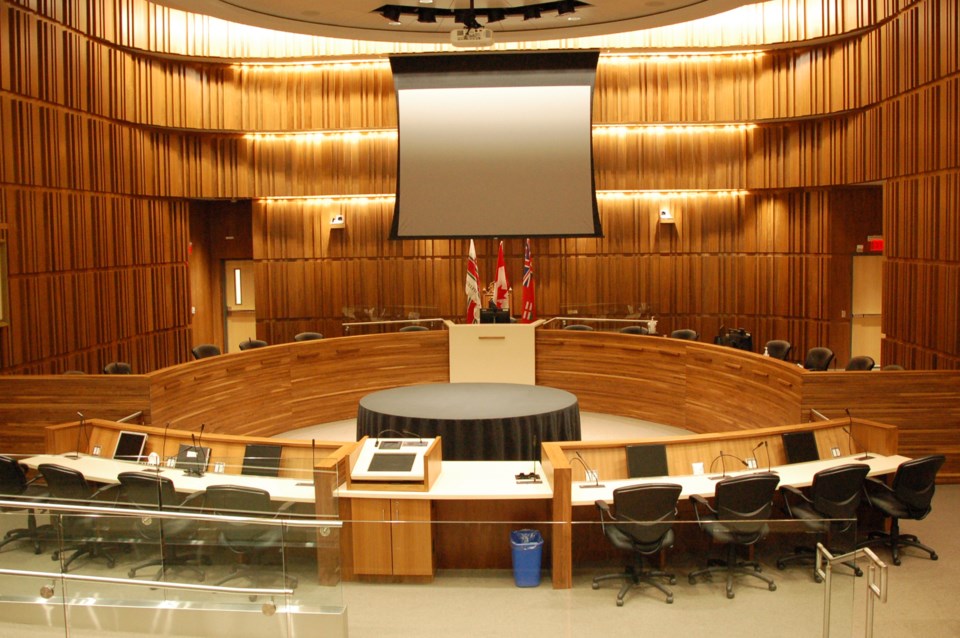My grandmother was known to say that if you can’t finish everything you need to get done in a day before midnight, you never will.
Grandma never met Guelph City Council.
This past Monday night, council tackled a packed agenda: two big projects having their statutory planning meeting, a decision report on a sensitive project in the west end, and an updated plan for an older part of town in the east end. Cut that agenda in half and it was still a busy night.
But could it have been less busy? Can the way we do business at these planning meetings be streamlined so that people can have their input, whatever it is, while council and city staff meet current requirements for creating engagement and collecting feedback?
I hesitate to get into this discussion about changing public engagement around planning issues because of the controversy involving ministerial zoning orders. MZOs undercut the usual planning process by shortening the timeline, cutting out the public feedback period and making the decision of council unappealable (actual word).
MZOs are supposed to be used sparingly, like less than “once in a blue moon” sparingly, but the provincial government loosened municipalities’ ability to use them a few years ago. It was a huge shift, and the supposed intention was to make it easier to build new housing projects, but some of the recent MZOs have been used to approve the construction of at least a couple of warehouses and a glass plant.
No matter what you think of the ordinary planning process, the MZO is worse, and it has so far not been used by Guelph City Council. That’s the right decision, but between the status quo and the nuclear option, there has to be some room for an alternative course of action.
For instance, do people really need 10 minutes for delegations at a planning meeting. You only get five minutes at every other meeting. There was something punishing about watching this week’s meeting as a dozen people tried for 10 minutes to not use the expression “those people” when trying to explain why they were against transitional or supportive housing in their neighbourhood.
Of course, the point of a planning meeting is to talk about planning issues. No matter what you feel about your potential new neighbours whether they’re students, seniors, or people that dress like Star Trek characters, the planning meeting is not the place to air those grievances because the “who” has nothing to do with the size of the building, the amount of parking, or any other matter of zoning.
This past week’s meeting had an additional level of difficulty for clarity because the transitional housing project on 65 Delhi St. will be built and administered by the County of Wellington but based in the City of Guelph who controls the zoning.
Believe it or not, there are people out there that don’t know that Guelph City Hall doesn’t administer housing and that it’s the responsibility of the county. For that reason, it’s also understandable that some people would be confused by the intention of the project and think that this housing was for people from outside of Guelph, but we’re unlikely to see people from Mulmur and Wellington North being moved to Delhi Street.
Again, these are issues that really don’t have anything to do with planning. It doesn’t address setbacks, or outdoor amenity space, or shadow studies, or municipal services, or any of that. These are organizational matters or matters of information sharing that council really doesn’t need to be involved with at this level because their role is only to look at the zoning and whether proposed changes are acceptable and manageable.
Later in the meeting, during the discussion about the Kindle Communities supportive housing project decision, one delegate inferred that there was not enough public engagement on the file. Staff confirmed that the city held up its end with the requisite number of public meetings, which is basically just the statutory public meeting and the delivery of the decision report.
But is that enough? I think the message we’re hearing is that it’s not, especially in the midst of an ongoing public health matter that makes in-person engagement exceedingly difficult if not impossible.
What we need is a third meeting, something between that first presentation and the decision where people can get an update on the developers work and have more flexibility to talk about the project beyond the immediate planning concerns. Granted, there’s nothing stopping developers from reaching our directly to area residents, but a formal council meeting galvanizes attention and interest in a way that other events cannot.
The rub is that the rules of the planning process are managed by the Province, and it’s unclear what the City can do to make unilateral changes. Unfortunately, I think it’s safe to say that there’s not much appetite at the moment in Queen’s Park for creating more public engagement in planning, even though that’s what a lot of people are asking for.
